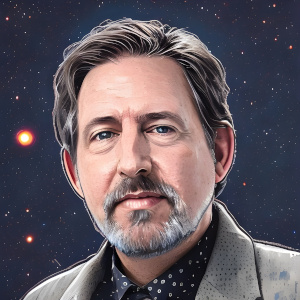Beyond Patchworks and Network States: Toward Wisdom-Centered Governance
As traditional governance structures struggle to keep pace with accelerating complexity, new models are emerging—some rooted in participatory deliberation and integral governance, others leaning toward elite technocratic control or radical decentralization. This presentation will contrast these competing visions by examining Nebulocracy and moral graph technology, not as standalone solutions, but as key components in the development of participatory, wholeness-oriented integral governance models. Rather than replicating the top-down corporatist structures of digital patchwork systems advocated by figures like Curtis Yarvin and Balaji Srinivasan, these approaches offer the potential to enhance deliberative democracy, foster collective wisdom, and create governance structures that are more adaptive and responsive to the complexities of an AI-dominated world.
Nebulocracy, as developed by David Shapiro, proposes AI-enabled wisdom aggregation to enhance collective decision-making. Its transformative potential aligns, I will argue, with Duane Elgin’s Choosing Earth, which frames humanity at a civilizational tipping point: between collapse (extinction), authoritarian consolidation, or an evolutionary leap toward planetary maturity. In this context, Nebulocracy and moral graphs provide mechanisms to facilitate the third pathway—transformation—by integrating human values into democratic deliberation at scale. By shifting from ideology-driven politics to systemic wisdom generation, these models could help societies move beyond digital fragmentation toward new forms of participatory governance that are resilient, adaptive, and attuned to complexity.
This talk will explore how moral graph systems could function as wisdom accelerators, fostering participatory governance while preventing algorithmic undertow from becoming a new form of digital control. Comparing these integral/eudaimonistic models with Patchwork governance (Yarvin) and Network States (Balaji), I hope to demonstrate how Nebulocracy better balances efficiency with participatory engagement and offers a more holistic approach to planetary coordination.
Key Themes:
- Wisdom-Centered Governance – From algorithmic manipulation to deliberative augmentation.
- Digital Systems as Evolutionary Tools – Aligning technology with human development.
- Comparative Governance – Nebulocracy vs. Patchwork vs. Network States.
- Balancing Automation & Deliberation – Ensuring human agency in AI-enhanced decision-making.
Rather than treating wholeness as an abstract ideal, this presentation will explore how it can be actively cultivated in governance through participatory, wisdom-centered frameworks. In contrast to the fragmentation of digital epistemic silos or the rigid impositions of authoritarian structures, integral governance models—such as nebulocracy and moral graphs—offer a means of bridging AI-driven intelligence with human deliberation and ethical reflection. By embedding systemic wisdom generation into decision-making at scale, these approaches support the emergence of governance structures that are both adaptive and coherent, capable of responding to complexity without collapsing into either chaotic decentralization or top-down control. In this sense, wholeness is not merely a structural goal but a living process, one that requires balancing automation with human agency, digital systems with embodied wisdom, and global coordination with local participation.

